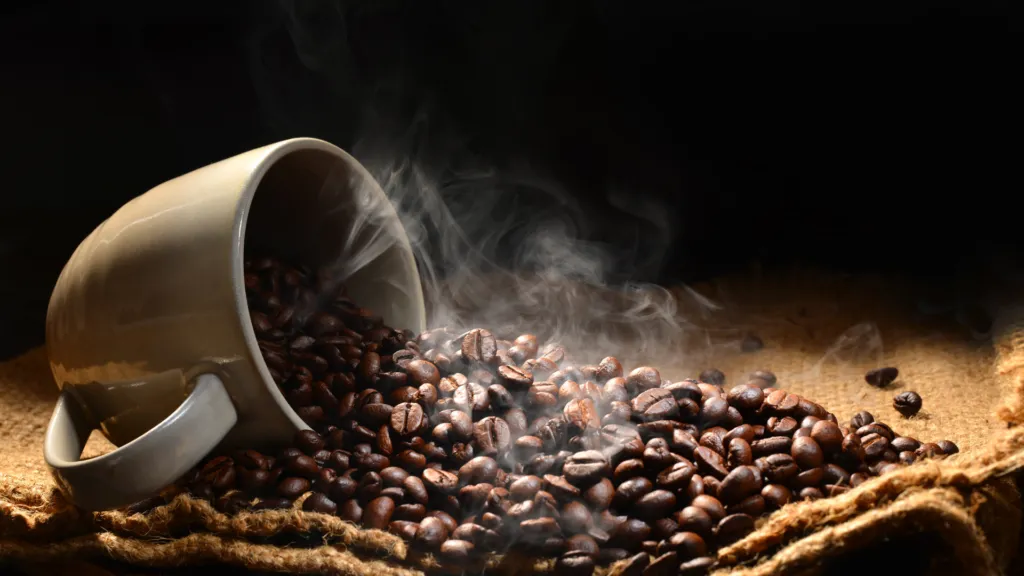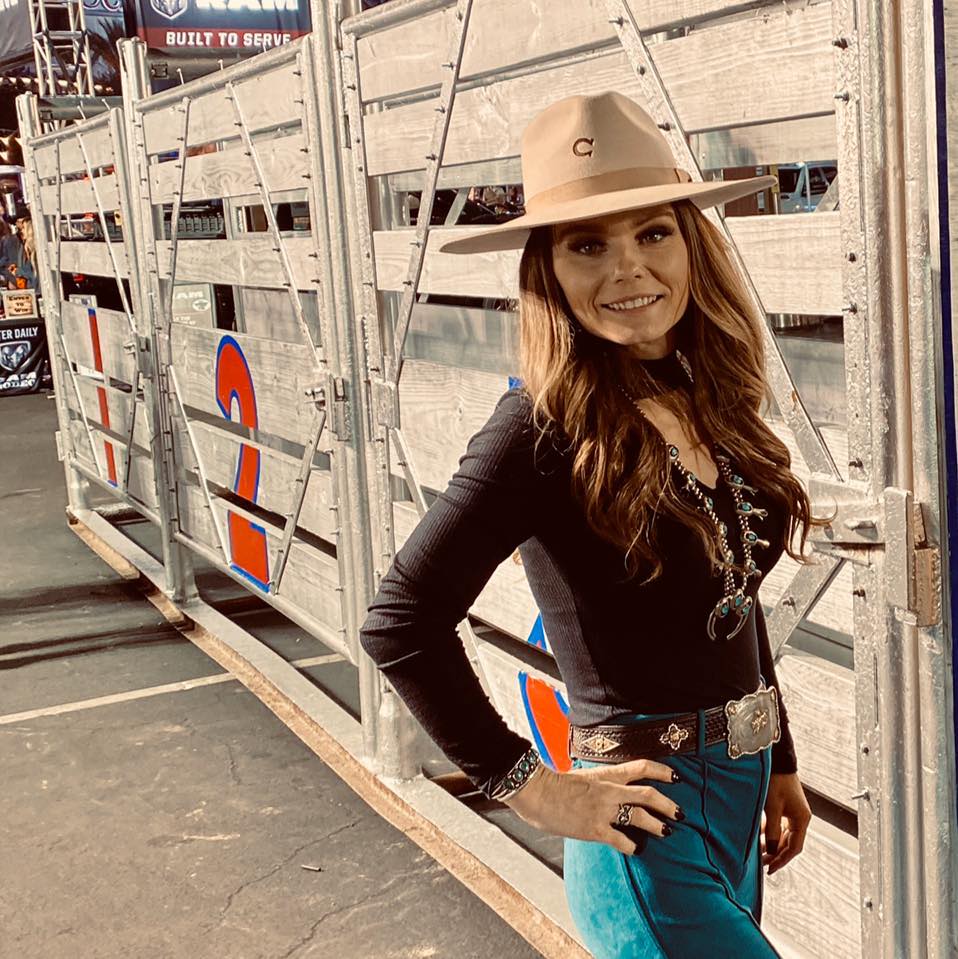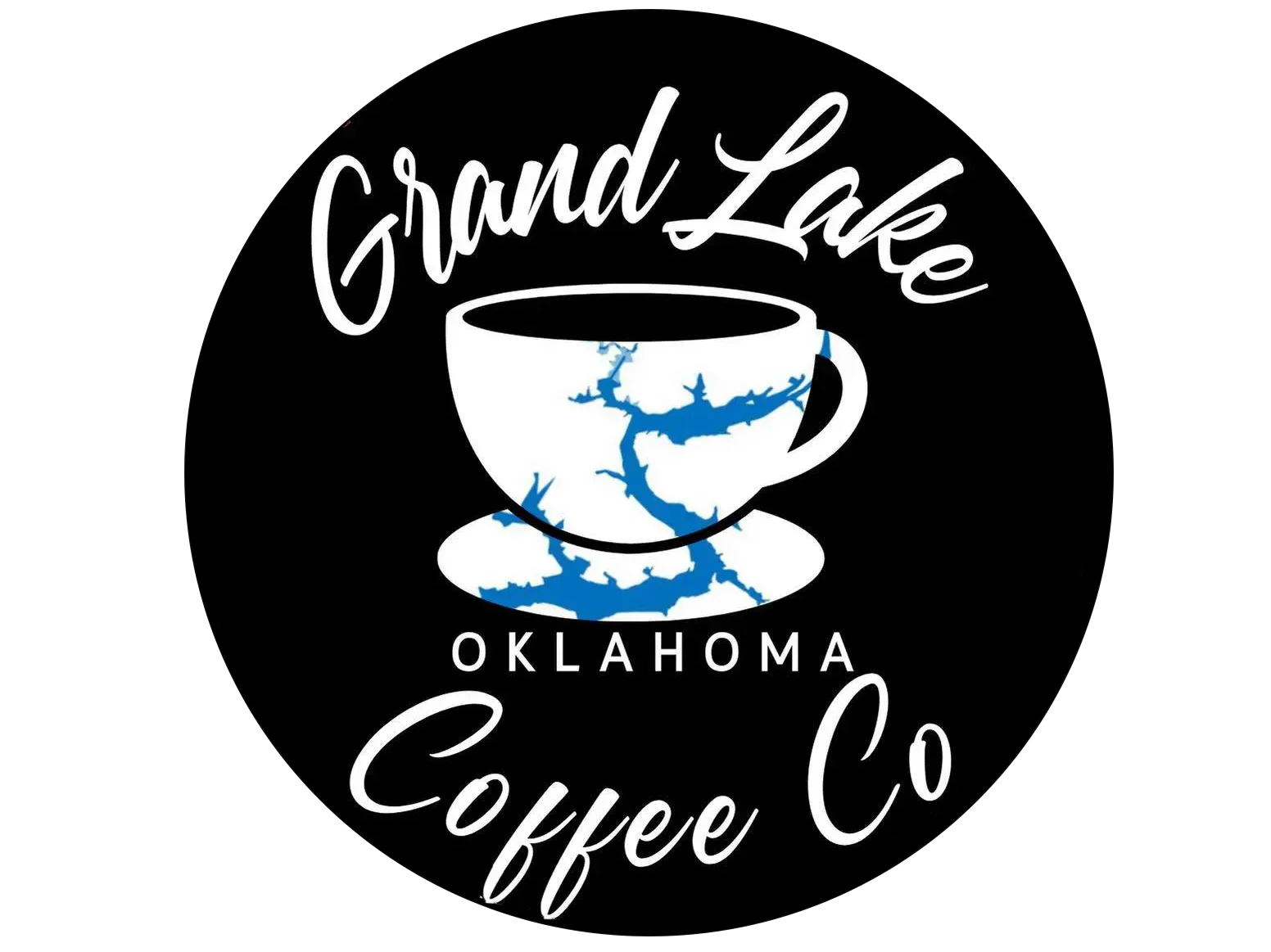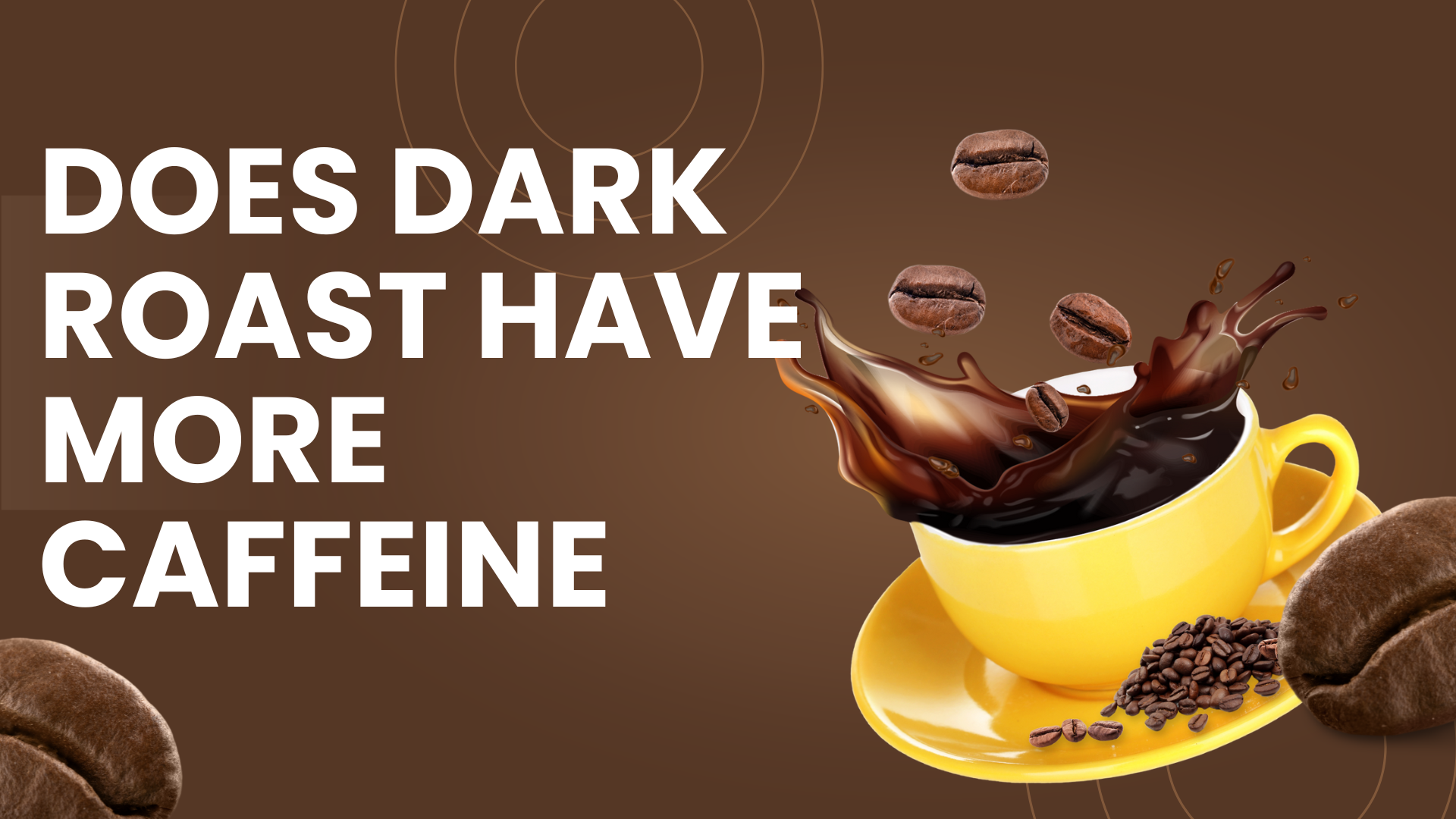A common misconception is that dark roast coffees contain significantly more caffeine than lighter roasts due to their bold flavor and deep color. In reality, dark roasts often have slightly less caffeine as a result of the longer roasting process.
Their characteristic flavor profile—often described as having notes of chocolate, nuts, and sometimes a hint of smokiness—also stems from this extended roasting. Additionally, dark roasts tend to be lower in acidity.
So, does the intense flavor of dark roast coffee truly indicate a higher caffeine content? Let’s investigate further Does Dark Roast Have More Caffeine?
Importance of Knowing About Dark Roast
Dark roast coffee is a beloved beverage consumed by millions of people worldwide, with over 150 million daily coffee drinkers in the United States alone. Its bold, robust flavor and lower acidity compared to lighter roasts make it a favorite among coffee enthusiasts.
Consuming dark roast coffee offers several potential benefits, such as a high content of antioxidants that may help reduce inflammation and protect against certain diseases. Furthermore, studies suggest that regular coffee consumption may lower the risk of type 2 diabetes, Alzheimer’s, and Parkinson’s disease.
However, consumers need to be aware of the caffeine content in their dark roast coffee to make informed decisions about their consumption, as excessive caffeine intake can lead to negative side effects such as jitteriness, increased heart rate, and difficulty sleeping.
Many people believe that dark roast coffee contains more caffeine than lighter roasts. However, the roasting process does not significantly impact the caffeine content; instead, the caffeine level is primarily determined by the coffee bean variety and the brewing method.
Factors such as the coffee-to-water ratio, grind size, and brewing time can all influence the final caffeine content in a cup of dark roast coffee. For example, using a higher coffee-to-water ratio or a finer grind size can result in a more concentrated and caffeinated brew.
Another factor affecting caffeine content is the coffee bean variety. Robusta beans, which are commonly used in instant coffee and espresso blends, contain about twice as much caffeine as Arabica beans.
Therefore, a dark roast coffee made with Robusta beans will likely have a higher caffeine content than one made with Arabica beans, even if the roasting level is the same.
Does Dark Roast Have More Caffeine?
No, dark roast coffee does not have more caffeine than light roast.
While the roasting process deeply alters the flavor, aroma, and even the physical structure of coffee beans, it has a surprisingly small impact on caffeine levels.
Caffeine is a remarkably resilient compound that withstands the high temperatures of roasting. The longer roasting time for dark roasts does lead to a tiny amount of caffeine loss, but it’s insignificant in the grand scheme of things.
However, two key factors contribute to the misconception that dark roast has more caffeine:
Bean Density
As coffee beans roast, they lose moisture and become less dense. Since dark roasts are roasted longer, they are less dense than light roasts. When measuring coffee by volume, you end up with more dark roast beans, which could slightly increase the total caffeine content. However, when measured by weight, the difference in caffeine content between light and dark roasts is negligible.
Surface Area
The roasting process also causes the beans to expand, increasing their surface area. A finer grind of the less dense dark roast beans could potentially expose more caffeine per bean when brewed. However, this effect is also relatively minor.
The brewing method also plays a significant role in the amount of caffeine in your coffee cup. Variables such as grind size, water temperature, and brewing time can affect how much caffeine is extracted from the beans.
Espresso, for example, often uses dark roast beans and has a reputation for being very caffeinated, but this is mainly due to the brewing method, not the roast level. A single shot of espresso may have more caffeine per ounce, but a standard serving of drip coffee typically contains more total caffeine due to its larger volume.
Serving size is another crucial aspect to consider. The amount of coffee you drink determines how much caffeine you consume. For instance, a standard 8-ounce cup of brewed coffee has around 95 mg of caffeine on average.
Several studies suggest that as long as coffee is measured by weight rather than by volume, the caffeine content between light and dark roasts is very similar. A research on Pubmed found that a sample of light roast brewed coffee contained about 60 mg of caffeine, while the same amount of dark roast had around 51 mg.
Another Pubmed study found that light roasted Cherry coffee contained the highest overall caffeine content among all the coffees tested, with a decrease in caffeine content observed with intensified roasting.
List of Ingredients in Dark Roast
Dark roast coffee, like all coffee, is made from roasted coffee beans and typically does not contain any additional ingredients. However, some coffee brands may add flavoring or other additives to their dark roast blends. Here are the main ingredients found in dark roast coffee:
- Roasted Coffee Beans: The primary ingredient in dark roast coffee is dark roasted coffee beans, which can be either Arabica, Robusta, or a blend of both. These beans are roasted for longer than light or medium roast beans, resulting in a darker color and bolder flavor profile.
- Water: Coffee is brewed by combining ground coffee beans with water. The quality of the water used can impact the taste of the final brew.
Optional ingredients that may be added to some dark roast coffee blends include:
- Flavoring: Some dark roast coffees may contain added natural or artificial flavors, such as vanilla, caramel, or hazelnut, to enhance or complement the coffee’s natural flavor profile.
- Preservatives: In rare cases, preservatives may be added to coffee to extend its shelf life, although this is not common in whole bean or freshly ground coffee.
High-quality, specialty dark roast coffee often consists solely of roasted coffee beans without any additional ingredients. If you’re unsure about the ingredients in your dark roast coffee, check the packaging or contact the manufacturer for more information.
Dark Roast Nutritional Information

Dark roast coffee offers a very low-calorie beverage at approximately 5 calories per 16-ounce serving. It contains virtually no fat, cholesterol, or sodium. You’ll also find zero carbohydrates, dietary fiber, or sugar naturally present in a plain cup of dark roast coffee. There is a small amount of protein (about 1 gram per 16-ounce serving).
The most notable nutritional aspect of dark roast coffee is its high caffeine content, coming in at around 260 mg for a standard 16-ounce cup. Remember, adding things like milk, sugar, and flavorings will change the nutritional profile significantly.
| Nutrition | Amount per 16 fl oz serving |
| Calories | 5 |
| Calories from Fat | 0 |
| Total Fat | 0 g |
| Saturated Fat | 0 g |
| Trans Fat | 0 g |
| Cholesterol | 0 mg |
| Sodium | 10 mg |
| Total Carbohydrates | 0 g |
| Dietary Fiber | 0 g |
| Sugars | 0 g |
| Protein | 1 g |
| Caffeine | 260 mg |
Dark Roast Variants and Their Caffeine Content

Dark roast coffee is known for its bold, robust flavor profile and darker color compared to lighter roasts. Several variants of dark roast coffee exist, each with unique characteristics:
French Roast
This is one of the darkest roasts available, with an intense, smoky flavor and thin body. The beans are roasted until they are nearly black and oily on the surface.
Italian Roast
Similar to French Roast, Italian Roast is very dark and oily, with a robust, slightly sweet flavor and a hint of char.
Continental Roast
This roast is slightly lighter than Italian Roast but still dark and rich. It has a balanced flavor with low acidity and a smooth finish.
Espresso Roast
Designed for use in espresso machines, this roast is dark and oily, with a complex flavor profile that includes notes of caramel and chocolate.
Vienna Roast
A bit lighter than French or Italian Roast, Vienna Roast has a deep brown color and a balanced, slightly sweet flavor with hints of chocolate.
New Orleans Roast
This very dark roast is popular in New Orleans and is often used in coffee blends designed for mixing with chicory.
Spanish Roast
A very dark roast with a strong, bold flavor and a slightly sweet finish. It’s often used in blends designed for making espresso drinks.
Alternatives To Dark Roast And Their Caffeine Content
If you’re looking for alternatives to dark roast coffee, there are several options available with varying levels of caffeine content. Here are some popular alternatives and their approximate caffeine content per 8 oz (236 ml) serving:
Light Roast Coffee
Light roast coffee, for instance, has a milder and more acidic taste compared to dark roast and may contain slightly more caffeine, with around 60-130 mg per 8 oz serving.
Medium Roast Coffee
Medium roast coffee offers a balanced flavor and aroma, with a slightly sweeter taste than light roast and contains about 60-120 mg of caffeine per 8 oz serving.
Decaf Coffee
For those sensitive to caffeine, decaf coffee is a good choice, as it has had most of its caffeine removed, leaving only 2-12 mg per 8 oz serving.
Espresso
Espresso, a concentrated coffee beverage made by forcing hot water under pressure through finely-ground coffee beans, contains about 63 mg of caffeine per 1 oz shot.
Instant Coffee
Instant coffee, made from brewed coffee that has been dried into soluble powder or granules, has around 30-90 mg of caffeine per 8 oz serving.
Green Tea
Green tea, made from unoxidized leaves, has a milder and more delicate flavor than coffee and contains 25-35 mg of caffeine per 8 oz serving.
Black Tea
Black tea, made from fully oxidized leaves, has a stronger and more robust flavor than green tea and has about 25-48 mg of caffeine per 8 oz serving.
Yerba Mate
Another alternative is Yerba Mate, a traditional South American beverage made from the leaves of the Ilex paraguariensis plant, which contains around 65-130 mg of caffeine per 8 oz serving.
| Product | Caffeine Content |
| Light Roast Coffee | 490 mg per 500 ml serving |
| Medium Roast Coffee | 520 mg per 500 ml serving |
| Decaf Coffee | 7 mg per 8-ounce serving |
| Espresso | 63.6 mg per 30 g serving |
| Instant Coffee | 46.5 mg per 6-ounce serving |
| Green Tea | 30 to 50 mg per 8-ounce serving |
| Black Tea | 47.4 mg per 8-ounce serving |
| Yerba Mate | 80 mg per 150 ml serving |
Recommended Daily Intake of Dark Roast
The caffeine content of 260 mg in a 16 fl oz serving of dark roast coffee can be compared to the general guidelines for caffeine intake recommended for adults. The recommended daily intake (RDI) of caffeine for most adults is up to 400 mg per day.
This recommendation is based on the amount considered to be safe for most adults to consume daily without experiencing negative effects, such as insomnia, nervousness, restlessness, irritability, stomach upset, fast heartbeat, or muscle tremors.
Thus, a 16 fl oz serving of dark roast coffee with 260 mg of caffeine falls within the acceptable daily limit for most adults. However, it’s important to consider the total caffeine intake from all sources throughout the day, not just from coffee.
Other sources of caffeine include tea, chocolate, some soft drinks, and certain medications or dietary supplements.
To ensure you stay within the safe limit, it would be wise to limit other sources of caffeine on days when you consume a 16 fl oz serving of dark roast coffee or to choose smaller servings or less potent sources of caffeine.
Conclusion
Does Dark Roast Have More Caffeine? The common assumption that Does dark roast coffee contains significantly more caffeine than lighter roasts is a misconception. While the bold flavor and deep color may suggest a higher caffeine content, the difference between roast levels is negligible.
Whether you prefer the nuanced, sometimes fruity notes of a light roast or the rich, smoky characteristics of a dark roast, the caffeine content should not be the primary deciding factor. If a caffeine boost is your goal, focus on brewing methods and the quantity of coffee grounds used.
Frequently Asked Questions
Q1. Is there less caffeine in dark roast coffee?
Yes, dark roast coffee generally has slightly less caffeine than lighter roasts. While the difference isn’t drastic, the longer roasting process does burn off a small amount of caffeine.
Q2. What elements affect coffee’s caffeine content?
Several factors influence the caffeine in your cup of coffee. Coffee bean variety plays a role (Robusta beans have more caffeine than Arabica beans). Additionally, brewing methods greatly affect caffeine extraction.
For example, a drip coffee maker yields less caffeine per cup than espresso. Finally, the quantity of coffee grounds used will directly impact how much caffeine is in your final brew.
Q3. Are there health benefits associated with dark roast coffee?
Dark roast coffee, like other types of coffee, contains antioxidants that may offer health benefits. Some studies link it with a reduced risk of certain types of cancer, improved liver health, and potential benefits for brain health. However, more research is always needed for conclusive findings.
Q4. How can I find out how much caffeine is in my coffee?
Unfortunately, caffeine content isn’t typically listed on coffee packaging. Some coffee shops or roasters may provide this information on their websites or upon request.
There are online resources that offer estimates of caffeine content in different coffee drinks, but they may not be completely accurate.
Q5. Is dark roast coffee stronger?
The term “stronger” is subjective when it comes to coffee. Dark roast offers a bolder, more intense flavor profile, sometimes described as smoky or bittersweet.
This is due to the longer roasting process, not necessarily a higher caffeine content. If you define “strong” by caffeine levels, then brewing methods play a more significant role than the roast level itself.

Rossi Glover, the passionate Owner of Grand Lake Coffee, infuses every cup with her love for coffee and dedication to quality. With an extensive background in the art and science of coffee, Rossi is not just a connoisseur but a storyteller, sharing the intricate tales behind each brew.

